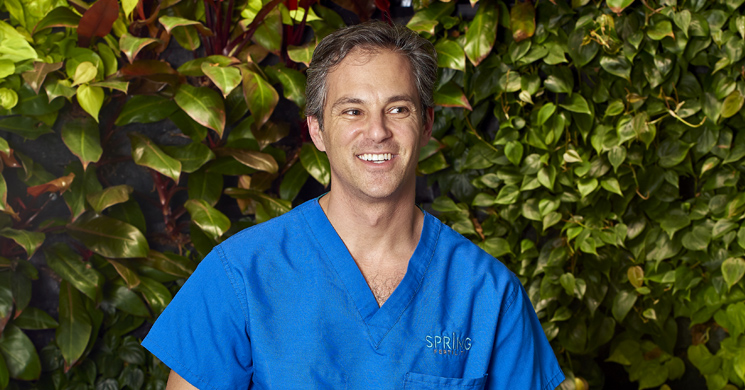Women balancing a career with family life may wonder about the “right” time to have a child. Do I have years to decide? What are my options? What considerations do I need to think through? These are all questions aspiring mothers may ask when planning for the future.
To help women navigate what can often be a confusing process, Dr. Peter Klatsky of San Francisco-based Spring Fertility has devoted his career to helping patients make informed conception decisions that are based on accurate data and the latest research. Spring Fertility offers oocyte cryopreservation services (i.e., “egg freezing”) in a uniquely warm and inviting setting.
We recently sat down with Dr. Klatsky to discuss the basics of egg freezing, common misconceptions about the process and how can it give women control over the timing of motherhood.
"Some women aren’t sure that they want children, but they want the option. Egg freezing is about creating those options."
Let’s start with the basics: What is involved in egg freezing, and how do you educate women about the process?
First and foremost, I want women to be informed so they understand what happens to their bodies as they age and all the options they have available when considering motherhood. For some, egg freezing is an expensive endeavor, and I wouldn’t ever try to convince somebody that they need to do it. That being said, if it’s within the client’s means, it can really help alleviate some of the stresses that come with aging and the uncertainty of one’s “biological clock.”
I can’t tell you how many people thank us not just for the information we give them about egg freezing, but because we’re able to educate them about normal reproductive functions that people don’t often understand. With that knowledge, they can make a decision for themselves about what is right for them and worth doing.
When a woman has decided she’s ready to explore egg freezing, we schedule an initial consult to review her history and medical condition, then perform an ultrasound and physical exam. From there we can create a protocol — a plan — based on her specific desires, schedule and time horizon.
The actual process takes about 10 to 14 days, which includes eight to 12 days of hormone injections and five to six office visits. The hormones stimulate the development of multiple follicles in the ovary. The patient goes under general anesthesia before we remove the eggs, which takes about 20 minutes. Most women experience pain similar to menstrual cramps, and then they’re walking out of our office half an hour later.
Can you paint a picture of your typical patient? What is she like?
The average woman who freezes her eggs tends to be strong, proactive and in her early to mid 30s. Maybe she’s been at the top of her class for her whole life, or she’s excelled at all her professional pursuits. She is focused on planning for the future — and by freezing her eggs now, she gains the opportunity to own her own timeline for motherhood.
For example, we often see women who are engaged or in a serious relationship who are hoping for a first child five years from now. They think, “What if I have problems conceiving when I’m 41?” Others aren’t sure that they want children, but they want the option. Egg freezing is about creating those options.
Is there a recommended time to freeze eggs?
If the woman thinks or knows she wants to have children in the future, the answer is simple: Her eggs are healthiest during her 20s and early 30s. Studies show that a woman’s fertility decreases rapidly after the age of 35, and after she turns 40 the odds of conceiving naturally are very slim. Therefore a woman who freezes her eggs while she’s in her prime years can avoid having to explore other, more difficult family planning procedures later. Young women should at least know this option exists.
What are some of the typical misconceptions you encounter?
Oftentimes our patients have been told by an older friend, colleague or mentor that they wish they had frozen their eggs when they were younger, but many women worry that the process affects their ability to conceive naturally or the age when they go into menopause.
The reality is that neither of those fears are true. So much of the information available online is incorrect. Women are born with well over a million eggs, and every day they use some up even when they’re not ovulating. So even when you’re not freezing your eggs, you are still losing about 500 to 1,000 eggs per month. Egg freezing does not change this rate of loss.
When women who have frozen their eggs return for the next step, what is it like — for them and for you?
When a patient has made that decision, we journey with them for the next few weeks or months and help them conceive with their own eggs by using in vitro fertilization (IVF), and that process is really gratifying. It’s one of the things we love most about our practice: the ability to care for couples or individuals longitudinally and help them achieve a successful outcome. In our team break room, we have our wall of Christmas cards with pictures of babies we’ve helped our patients conceive, which is really meaningful.
The information in this article is presented as is.




